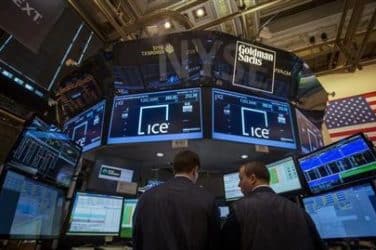
CFTC hears opposition to swap execution facility rules under Dodd-Frank.
Wholesale brokers of OTC derivatives transactions are voicing strong opposition to several CFTC rulemakings that govern the operation of swap execution facilities (SEFs) under the Dodd-Frank Act.
“In some cases an attempt to force certain pre-trade disclosure rules can severely damage a market,” Michael Cosgrove, managing director and head of commodities & energy brokerage, North America at GFI Group, said at Tuesday’s meeting of the CFTC’s Technology Advisory Committee. “There are a number of proposed rules that if passed may have such an effect.”
One example of such a rule is the CFTC’s proposed rule for determining when a swap s made available for trading.
The proposal provides that DCMs and SEFs, rather than the CFTC, will make the determination of when a swap has been made available to trade by considering seven enumerated factors, or any other factor that the DCM or SEF may view as relevant. The DCM or SEF may base its determination on any combination of the factors, or on a single factor.
Once such a determination is final, all other DCMs and SEFs are obligated to determine whether they list or offer the same, or an economically equivalent swap, and if so, they must treat the swap or economically equivalent swap as having been made available to trade.
“This class of swaps must be cleared and executed on a regulated facility such as designated contract market or swap execution facility,” said Cosgrove. “These will be subject to a far higher standard of execution than those not designated as available for trading.”
A determination by one venue that a swap is available to trade may force the hands of other venues. For example, the proposed rules would allow a DCM or SEF to declare a swap made available to trade based solely on a finding that there are ready and willing buyers and sellers.
The definition of “economically equivalent” set forth in the proposal is also problematic. It directs DCMs and SEFs to determine whether a swap is economically equivalent with another swap after considering each swap’s “material pricing terms.”
Cosgrove said that another proposed rule, dealing with daily trading records would effectively ban the use of the telephone as an instrument for trading swaps.
The rule would require swap dealers and major swap participants to maintain records of all communications provided or received, concerning information that leads to the execution of a swap, “whether conveyed by telephone, voice mail, facsimile, instant messaging, chat rooms, electronic mail, mobile device or other digital or electronic media.”
The rule would require that each recorded communication be maintained as a separate electronic file identifiable and searchable by transaction and counter party.
“Not only does this rule as stated effectively outlaw business by telephone, but it functionally limits all market participants to one, possibly two forms of purely electronic trading platforms,” said Cosgrove. “Now, it’s good for me if I own the platform, but it’s not good for competition, and not good for hedgers.”
Another rule that Cosgrove said was problematic is the so-called 15-second rule, by which SEFs must provide a general timing requirement applicable to traders such as brokers who have the ability to execute against a customer’s trade (internalization) or are entering a trade for two customers on opposite sides of the transaction (crossing).
Under the CFTC’s proposal, a broker would have to provide a minimum pause of 15 seconds before entering the second side (whether for its own account or for a second customer), during which time the order would be exposed to other market participants and allowing them to join in the trade.





